temperatures
5 posters
:: Freshwater :: Freshwater General
Page 1 of 1
 temperatures
temperatures
I was reading up on an African Cichlid that I have yet to see, and came across an interesting reminder of how one size does not fit all. You would assume (or I would have, anyway) that a fish from close to the equator in tropical, coastal rivers of Africa would need water around 26-27, the usual setting for our heaters. And yet some Cichlid Genera of the region come from water that flows down mountains through heavy forest canopies, and like a lot of Killies they share their habitat with, like water in the very low 20s.
It got me thinking about some of the Corydoras type fish I've kept, like my long lost beloved Scleromystax barbatus, that hate warm water to the point they can die in it. They come from fast flowing waters in hilly regions with dense forest cover too, only in South America.
Apistogramma borellii and some of the more common annual killies, along with the newly popular Gymnogeophagus species, come from south of the equator, to the point where they too are moving towards more temperate conditions, with weather like the Carolinas. Some of the killies, like nigripinnis and bellotti, have been caught by people who broke thin layers of ice to get to them.
I have bred many swordtail species in unheated tanks in my wintertime basement (and now garage). They can thrive at 21-22. Likewise for southern rainbowfish.
Often, the longer a fish has been in the hobby, the less it needs a heater. The oldtimers chose their species to be cool tolerant, as they didn't have heaters.
It's something to think about, as once summertime comes (it has to, someday, maybe in 2017) heaters often malfunction and stick in the hot weather. We often come to the point where we have to think about unplugging them for a few weeks.
It got me thinking about some of the Corydoras type fish I've kept, like my long lost beloved Scleromystax barbatus, that hate warm water to the point they can die in it. They come from fast flowing waters in hilly regions with dense forest cover too, only in South America.
Apistogramma borellii and some of the more common annual killies, along with the newly popular Gymnogeophagus species, come from south of the equator, to the point where they too are moving towards more temperate conditions, with weather like the Carolinas. Some of the killies, like nigripinnis and bellotti, have been caught by people who broke thin layers of ice to get to them.
I have bred many swordtail species in unheated tanks in my wintertime basement (and now garage). They can thrive at 21-22. Likewise for southern rainbowfish.
Often, the longer a fish has been in the hobby, the less it needs a heater. The oldtimers chose their species to be cool tolerant, as they didn't have heaters.
It's something to think about, as once summertime comes (it has to, someday, maybe in 2017) heaters often malfunction and stick in the hot weather. We often come to the point where we have to think about unplugging them for a few weeks.

GaryE- Veteran Member

- Posts : 2505
Join date : 2013-09-07
 Re: temperatures
Re: temperatures
I must agree but one must always remember most of the fish we keep unless ordered on line from contrt of origin were raised in captivity. I try to find out water chemistry from breeders as much as possiable. Many fish are bred in warmer tanks to speed up there metabolism for growth. I try to keep my fish as close to where they came from as possiable but have had more luck with cichlids at warmer temperatures. Every time I've had a heater fail my fish show signs of disease or just out right die. I feel it's kinda like my dog she probably wouldn't make it in a wolf pack hunting in the forest cause she used to living in a warm house....lol what us the cichlid that you are looking for?
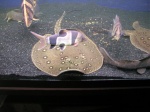
Corvette70- Angel Fish

- Posts : 106
Join date : 2015-03-31
 Re: temperatures
Re: temperatures
I was going really obscure - a Parananochromis from West Africa. I saw a facebook photo of one brought to the attention of scientists in the field for the first time early this year, and got curious. I kept and bred Parananochromis caudofasciatus 15 years ago and it was a fish I liked a lot. So new discoveries in the family, even if I may never see one alive, can be something to try to figure out. In my mind, I have a tank set up for them....
When I had the caudofasciatum, I kept them warm, thinking they were from Cameroon, after all. That may explain why they only bred once and I lost the juvies and adults in the dog days of summer. In my mind, that was always one of those mystery wipeouts since I figured an equatorial fish could handle a couple of weeks up around 30 during a hot Montreal summer. All the other Cichlids were fine, but I also lost some killies that summer. I was just reading a section on Parananochromis in Anton Lamboj's wonderful West African cichlid book, and I just about smacked myself in the forehead with one of those "of course!" moments. I guess it was a reverse eureka moment.
When I had the caudofasciatum, I kept them warm, thinking they were from Cameroon, after all. That may explain why they only bred once and I lost the juvies and adults in the dog days of summer. In my mind, that was always one of those mystery wipeouts since I figured an equatorial fish could handle a couple of weeks up around 30 during a hot Montreal summer. All the other Cichlids were fine, but I also lost some killies that summer. I was just reading a section on Parananochromis in Anton Lamboj's wonderful West African cichlid book, and I just about smacked myself in the forehead with one of those "of course!" moments. I guess it was a reverse eureka moment.

GaryE- Veteran Member

- Posts : 2505
Join date : 2013-09-07
 Re: temperatures
Re: temperatures
I agree with what you said.
I'm starting to remove heaters from my tanks.
I'm now at 2 tanks without them and I noticed that my fish are much more active in them then they were before.
I'm sure it has something to do with how they were raised+how nature is with temperature drops every night..
I'm starting to remove heaters from my tanks.
I'm now at 2 tanks without them and I noticed that my fish are much more active in them then they were before.
I'm sure it has something to do with how they were raised+how nature is with temperature drops every night..
 Re: temperatures
Re: temperatures
We turned the heater off in both the tequila tank and Callie's and Cherry's tank (panda cory and guppy) last summer and completely forgot to turn them back on this winter - they seem to be doing fine, so we plan to leave them off for good! The heater in our female betta's tank malfunctioned soon after we adopted her, about a month ago...we meant to replace it, but life got in the way - I actually forgot about it until I saw this post! The betta, Tiny Sparkle, appears to be doing great without it, so I am half considering leaving her as is also?! The mosquito fish and nerites have never had a heater. 
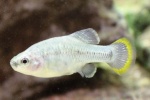
Shell- Lead Moderator
- Posts : 2607
Join date : 2013-09-06
Location : Nova Scotia
 Re: temperatures
Re: temperatures
As temperatures are quite decent all year round in my fish closet, only the tanks where I try to breed bettas have a heater.
I even notice now that the temp in the goby's tank is higher than 23/24 they stopped breeding.
I even notice now that the temp in the goby's tank is higher than 23/24 they stopped breeding.

Biulu- Support
- Posts : 3694
Join date : 2013-09-12
Location : Montreal, Quebec
 Re: temperatures
Re: temperatures
We are not breeding, so would you say it is a decent risk to leave the heater off with our female betta? As I said before she has been without a heater for a month or so...doing great from what we can see!Biulu wrote:As temperatures are quite decent all year round in my fish closet, only the tanks where I try to breed bettas have a heater.
I even notice now that the temp in the goby's tank is higher than 23/24 they stopped breeding.

Shell- Lead Moderator
- Posts : 2607
Join date : 2013-09-06
Location : Nova Scotia
 Re: temperatures
Re: temperatures
I ensure that temps for the bettas don't drop below 23 and for breeding I have temp around 25.

Biulu- Support
- Posts : 3694
Join date : 2013-09-12
Location : Montreal, Quebec
 Re: temperatures
Re: temperatures
Some people have reacted critically when I've written this, but the longest lived male Betta I ever saw was one my mother kept. It was in a 4 gallon tank, with lots of plants and clean water, and its temperature changed with the seasons. I would say from about 17-20 all winter (on the edges of northern Ontario, a long winter...) to 30 in the summer. That house was not the warmest, but the Betta splendens was always active, and absolutely beautiful for years and years.
Yes, that it not a natural temperature range, but there was equally nothing natural about a fish tank, the food, the lighting... the fish was clearly thriving for its extended lifespan.
Yes, that it not a natural temperature range, but there was equally nothing natural about a fish tank, the food, the lighting... the fish was clearly thriving for its extended lifespan.

GaryE- Veteran Member

- Posts : 2505
Join date : 2013-09-07
:: Freshwater :: Freshwater General
Page 1 of 1
Permissions in this forum:
You cannot reply to topics in this forum
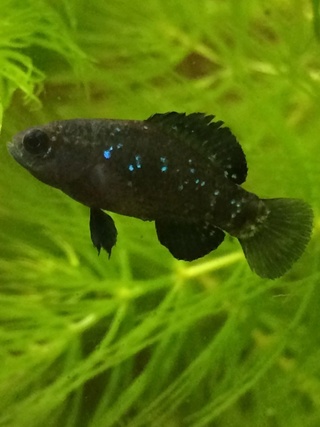 Alexmtl
Alexmtl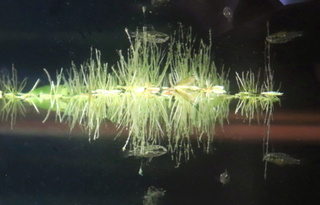
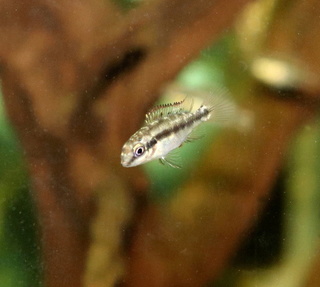

» Anyone still around? Need help transporting fish
» Stocking suggestions
» New Tank Purchase
» 3 Gallon Tetra half moon tank
» White floaty stuff in gold fish tank
» Ammonia in tap water
» Need advice for beginner with fresh water tank
» Fluval FX5 hose size?
» smart fish, dumb fish, pink fish...um, what rhymes with dumb?
» Is K&E sandblasting sand same as Black diamond?
» What the...is that a leak? NOOOOOOOOOOO!!!!! (a comedy of horrors...)
» Air stones and the noise they make
» aquatic medications
» film like stuff on the water surface of shark tank
» Articles on swordtail behaviour and fathead minnows
» Lets see your predators!
» Humane way to PTS a shark
» My tanks (Introducing myself)
» Build your own aquarium